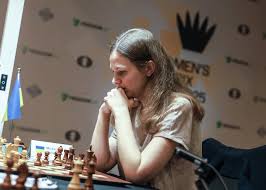Chess Grandmaster Anna Muzychuk Chooses Principles Over Titles

Chess Grandmaster Anna Muzychuk Chooses Principles Over Titles
In December 2017, the world of chess was shaken by a bold and principled stand from Ukrainian grandmaster Anna Muzychuk. Then just 27 years old, she announced that she would not compete in the World Rapid and Blitz Championships, held in Saudi Arabia, despite being the reigning champion in both formats.
Her decision came at great personal cost. “In a few days, I will lose two world titles, back to back,” Muzychuk wrote. “Because I decided not to go to Saudi Arabia.”
The issue was not about the game, nor about competition. It was about human dignity. Saudi Arabia, at the time, required female participants to follow strict rules. Women had to wear an abaya in public, could not move freely without a male escort, and lived under conditions that Muzychuk described as treating her like “a second-class person.”
“I refuse to play by special rules,” she declared. By skipping the event, she knowingly forfeited the chance to defend her titles and the possibility of winning one of the largest prize pools in chess history. “In just five days, I could have won more money than dozens of other tournaments combined,” she admitted. “But I will follow my principles.”
Her refusal drew attention to a wider debate in global sports—how international federations weigh human rights concerns against financial incentives. For Muzychuk, the choice was clear. “This is all very nasty,” she said, “but the sad part is no one seems to care.”
The chess world was divided. Some praised her courage and integrity, calling her decision an act of resistance against discriminatory norms. Others, including some competitors, argued that participation could have served as a way to challenge stereotypes from within.
Still, Muzychuk stood firm. Her message was not only for chess, but for women everywhere: that no title or prize could outweigh self-respect.
Years later, her decision continues to resonate beyond the chessboard, remembered not as a forfeiture, but as a victory of principle over compromise.











